July 22 marks the 66th anniversary of the famous Abaza surgeon Mukharbi Tatarshaov. The WAC web information portal prepared an essay about the interesting life and professional paths of this extraordinary person.
Lyudmila Aysanova
Mukharbi Hadjibekirovich Tatarshaov - a talented surgeon, professor, doctor of medical sciences, honored doctor of the Russian Federation and the Karachay-Cherkess Republic - was born on July 22, 1953 in the ancient Abaza village Psyzh (former village of Dudarukovsky - ed.) in the family of ordinary village workers.
Unique surname
Tatarshao lived in this village for more than five generations. According to family tradition, their ancestor was called “Tatarshaua” due to one of the old customs, when the groom, having no right to show up before relatives before the wedding, was forced to temporarily live with other relatives or friends. At that time they were the Kunaki-Tatars, from which the Adyg name of the name Tarshao came, which means “who was visiting the Tatars”. All members of the Mukharbi’s family are Tatarshao, but by accidental circumstances Mukharbi himself is recorded as Tatarshaov: it just so happened, and he did not redo the documents.
His father - Khadzhibekir Tatarshao - was a livestock breeder in the district, he worked on a collective farm from dawn to dusk, he was known as a very kind and decent person. Mother, Sakinat Tugov - a native of the village Koydan. She gave birth to five children, the youngest of whom was Mukharbi - the most agile and inquisitive.
Exact calculation and life adjustments
At school, Mukharbi studied well: he loved mathematics, physics, chemistry, but with Russian there were difficulties. He did not despair, he reassured himself that language was not so important: most importantly, he knew how to solve complex problems in exact subjects. When he was finishing school, he already firmly knew that he would become a military man, because he had dreamed about this for a long time. An example was his uncle on the mother’s side Nazir Tugov - a career military officer who served in many points of the Soviet Union. Stately, handsome and courageous, his uncle was a hero not only in the eyes of little Mukharbi, but also of all his relatives and friends. Arriving on vacation for a leave, he often visited his sister. His bearing, honor and dignity, and how he could present himself, fascinated Mukharbi, and he wanted to become exactly such a person.
“I had a “paranoid” desire to become a military man, I saw myself only in this field,” recalls Mukharbi.
My uncle was also happy with his choice and helped in every way. But life turned differently: the young man simply failed to pass a medical examination.
After the failure in the military school, Mukharbi thought about the likelihood of working with his father on the collective farm, having studied before that at an agricultural institute. “I heard that my father was in the period of “distortions” of collectivization and saved the lives of many of his fellow villagers during the famine years. And I assumed that, having become a specialist in agriculture, I can provide for myself and my family well-being,” says Mukharbi.
In general, in the family of Mukharbi, everyone supported each other in unison. Since all the children studied in universities, and it was hard for parents financially, they even began to practice this method: the elder brother or sister, after graduating from the university, helped with the subsequent education of the other one.
“The most advanced training in extreme conditions”
However Mukharbi did not chose agriculture. The eldest sister Nadya, who at that time was finishing her studies in Stavropol, influenced the final choice of profession. She advised her brother to try to enter the Stavropol Medical Institute. And he tried, but ... what was the disappointment of a young and stubborn Abaza guy when it turned out that in all the entrance exams to the institute he “A”, and in the Russian exam he got an “F”!
Since the rest of the subjects, indeed, everything was “excellent,” as an exception, the entrant was allowed to try to correct the situation and retake the essay.
At that time, exams were taken on the basis of the Karachay Pedagogical Institute - the leading university in the region, where another mother’s brother, a linguist Vladimir Batahovich Tugov, worked. The famous uncle had no time to repay his nephew for his poor knowledge of the Russian language: it was necessary to urgently do something, since the second attempt was made.
“The most well-known literary scholars and experts in the field of linguistics of our republic and the North Caucasus took part in my most urgent teaching of writing an essay in extreme conditions in the Russian language and literature, - Mukharbi Hadzhibekirovich says with irony. - These were, in addition, uncle, Rauf Nukhovich Klychev and Leyla Abubekirovna Bekizova. They fulfilled their task, and I received a cherished solid “C”.
“Professor Tartashaov”
Now the young man was waiting for the regional center - Stavropol, in which he had never been before. He liked the city very much, but it seemed so huge that Mukharbi was frightened: what if he could not find a relative of his father, at whom he had to stay in order to go to the institute the next morning?
“Having lost my way and already almost despaired, I happened to be at the House of Political Education. Fortunately for me at that moment a man turned around the corner of the building, which turned out to be ... that same relative Karnei Shamsudinovich Tarshao. I shouted after him with all my might, so that the whole district heard, and passers-by of the adjacent streets looked around,” the surgeon said with a smile.
Mukharbi very quickly became involved in school, did not lag behind his classmates. At the institute, he gained popularity also thanks to his school hobby, which he continued to develop: he was engaged in weightlifting. The photograph of the winner of numerous competitions of the weightlifter Mukharbi Tatarshaov decorated the honor hall of the Medical Institute for many years. Mukharbi did not leave the sport further in the future, becoming a candidate for the master of sports.
In general, whether because of his strength of character and purposefulness, or thanks to his teachers, Mukharbi began to realize that he was incredibly fascinated by all that he was learning.
Very warmly Tatarshaov still speaks of his teacher - the head of the department of operative surgery and topographic anatomy of the Stavropol Medical Institute Revekkah Ilyinichna Polyak. Mukharbi still remembers her lectures and practical exercises until now, and he himself was a favorite student of the teacher. “She often said, mentioning a famous surgeon, that “this Ostroverhov knows the subject excellently and Tatarshaev and I, as she pronounced my name, only at “B” level” recalls Mukharbi.
In those student years, walking through the evening Stavropol, a talented, full of strength Abaza young man from the province no longer regretted the unfulfilled military career or the agricultural institute: he firmly knew that he had chosen his favorite work and clearly saw his way to the future.
Once the girls from the course at the lecture suggested jokingly writing notes and wishes in the margins of their notebooks. For a long time in the audience stood the roar of laughter and voices, young people lively exchanged views. But Mukharbi suddenly saw in his notebook only one entry: “Professor Tatarshaov”.
“At that very moment I decided for myself that I, the son of an ordinary collective farmer, would do everything possible to become a good doctor, be sure to become a professor. And, as you can see, he fulfilled his promise,” says Professor Tatarshaov with a smile.
He carried out his first operation as a third-year student and remembered it for life. It was a practice in a cancer hospital and an operation of suppurative cysts.
“Then I completely felt like a real doctor, after the end of the operation I didn’t wash my disinfected hands for a long time, walked around the city enchanted and overwhelmed with happiness,” says Mukharbi.
Experience and progress
In 1976, Tatarshaov was sent to undergo internship at the Cherkessk city hospital. Mukharbi Hadzhibekirovich assures that he has always been very lucky with people in life, so this time he was lucky to work under the authority of the already well-known surgeon of the region Madzhid Kanamatov, who introduced him to scientific and practical surgery. In this hospital, Mukharbi has worked for more than 10 years and gained a lot of experience. Now he needed new knowledge and methods, he had a great desire to develop and improve.
In 1988, Mukharbi Tatarshaov went to work at the Karachay-Cherkess Republican Clinical Hospital as the head of the surgical department. At that time, only emergency and minor in complexity planned operations were carried out in the department. Tatarshaov actively set to work, in the shortest possible time having formed a team of dedicated doctors. The head of the department wanted to set up work in such a way as to make more complex operations so that patients would not have to travel to other regions. Mukharbi begins to practice a lot in the leading clinics of the Soviet Union, actively transfers his experience to young surgeons.
In 1989, at the Kiev Research Institute of Clinical and Experimental Surgery, Mukharbi Tatarshov defended his thesis, and in 1996, his doctoral dissertation.
Over time, the surgical department of the Republican Clinical Hospital becomes a full-fledged treatment center where patients from the whole region turn, and Dr. Tatarshaov is one of the most experienced surgeons in the region.
He develops and introduces new diagnostic methods and original reconstructive surgeries into clinical practice (reconstructive surgery is one of the sections of medicine that deals with the restoration of a lost or deformed part of the human body - ed.) in diseases of the liver and biliary tract, pancreas. The results of the treatment of patients according to his methods are noted at the international level.
Professor Mukharbi Tatarshaov is one of the co-authors of the modern tactics of diagnosis and treatment of patients with acute destructive pancreatitis (a serious and dangerous disease of the gastrointestinal tract, often resulting in the death of a patient - ed.). In the department headed by Mukharbi Hadzhibekirovich, the death rate from acute destructive pancreatitis is one of the lowest in the CIS countries.
“I remember almost everyone whom operated”
Professor Mukharbi Tatarshov today is a practicing surgeon of the highest category, with a record of more than 7000 operations. In recognition of his contribution to the formation and development of surgery by the medical communities of the Republic and the North Caucasus, Mukharbi Hadzhibekirovich was twice honored with the Golden Scalpel prize. He is the author of more than 125 scientific papers, three copyright certificates and patents for the invention. Many of his works have been translated into other languages of the world.
Mukharbi Hadzhibekirovich combines his scientific and practical work with teaching. He created the school of hepatobiliary surgery (that is, surgery involving diseases of the body's hepatobiliary system, which is responsible for such important processes as digestion and excretion of metabolic products - ed.), widely known not only in the North Caucasus region.
Professor Tatarshaov is also active in social activities. Mukharbi Hadzhibekirovich - Board Member of the Russian Society of Surgeons-Gastroenterologists, Editorial Board of the “Surgery of Ukraine” journal, Chairman of the Expert Council and Expert Group on Surgery of the Ministry of Health of the Karachay-Cherkess Republic, honorary member of several surgical associations.
Mukharbi Tatarshaov has another award, which he especially values - the Order of the Republic of Abkhazia “Honor and Glory” of the III degree. From the first day of the 1992-1993 Patriotic War of the people of Abkhazia, Mukharbi Hadzhibekirovich became an active participant in all humanitarian actions. He ordered to allocate premises for patients and relatives accompanying them from Abkhazia in his hospital.
“At the base of the department, I carried out emergency operations on the wounded, who were brought to my hospital by helicopter,” recalls Mukharbi.
Speaking with this outstanding doctor, you constantly catch yourself that he combines many important human and professional qualities: national dignity, nobility, a sense of civic responsibility, attention to people.
“I remember almost every one of those whom I operated, I actively communicate with many of them today. Even now, going into the operating room, I feel anxious, as I did for the first time, but on weekends I never stop learning about the state of postoperative patients,” says Tatarshaov.
Family values and love of life
Communicating with him, you admire the breadth of his soul, brilliant humor, genuine sincerity, that it is not easy to keep with such hard, responsible long-term work. He is simple in communication, loves people - and all this successfully gets on in him with firmness and masculinity.
On the assumption that, surely, the most important thing in his life is work, Mukharbi Hadzhibekirovich objected: “Undoubtedly, work takes up most of my time and takes a lot of energy, but my family remains in the first place.”
And it is not just words. As befits a younger son in an Abaza family, where they honor ethnic traditions, he remained to live in his parents' house with his mother, despite the offers of housing in Moscow or major cities, where he was invited to work.
He became a real son of his father, who, unfortunately, died early and did not see the success of Mukharbi, which the doctor regrets with tears in his eyes. With all his brothers and sisters, he maintains excellent, intimate relationship. He can talk about them for hours, and there is something to tell. The elder brother Azret Tatarshao is a very famous person in the Republic, a candidate of historical sciences who graduated from Moscow State University. At various times, he worked as a vice-rector for scientific work at the Karachai Pedagogical Institute, deputy chairman of the government of the Karachay-Cherkess Republic. Sister, Nadya Kardanova, who became a mentor in choosing a profession - Honored Teacher of Russia. Mukharbi speaks with love about the other two sisters - Fatima and Lyuba.
As befits an Abaza man, Mukharbi begins to tell more sparingly about his wife and children, but even here his sincerity and immediacy take their toll: he proudly shares the successes of his family. Wife, Tezada Batyrovna, worked for many years as a head teacher at the Psyzh secondary school. The eldest son Azamat works in the Investigation Committee of the Karachay-Cherkess Republic, he has the rank of colonel. He is also the winner of the World Cup, the silver medalist of the European Championship and repeated champion of Russia in kickboxing. His only daughter Albina, like her father, chose the profession of a doctor. She lives in Arkhangelsk and works as a gynecologist. The younger son Arsen graduated from the law faculty of Stavropol University, now he works in the tax inspection in Cherkessk.
At the end of our meeting, Mukharbi Hadzhibekirovich, this enthusiastic man, suddenly spoke about another of his passion. As it turned out, he “with his friend Volodya Chikatuev” was going fishing at the weekend and was clearly anticipating a pleasant pastime. And I thought: “How important is it to any professional to have hobbies in order not to“ burn out at work ”, to remain receptive to the simple values of life, to rest, to gain new strength!”
I would like to wish Professor Tatarshaov inexhaustible energy, success and prosperity. I think thousands of grateful patients, colleagues, students and close people of the famous surgeon will join these wishes.
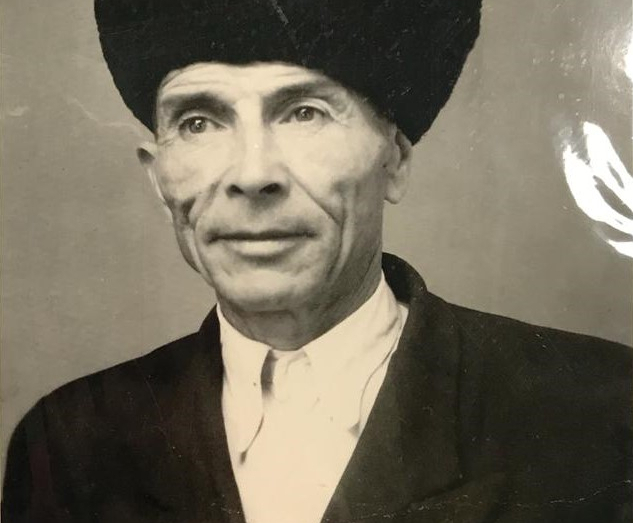
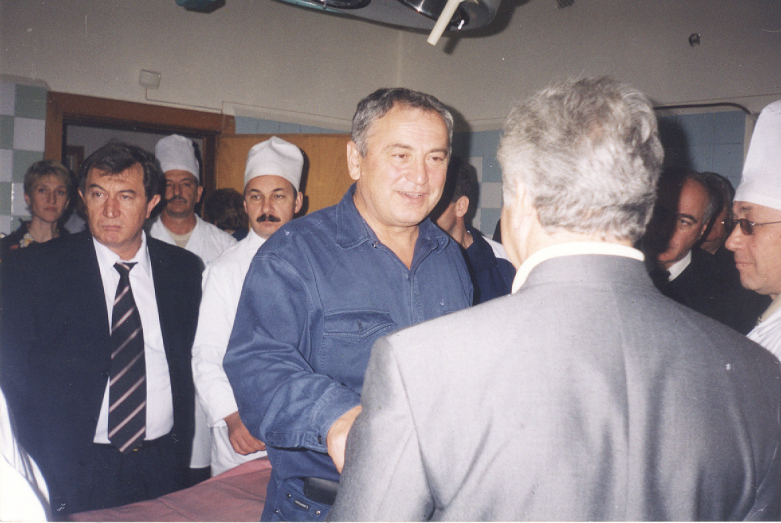
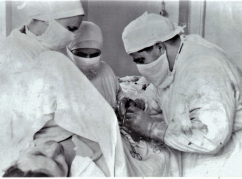
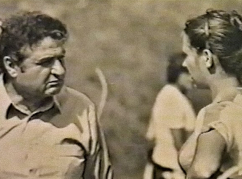
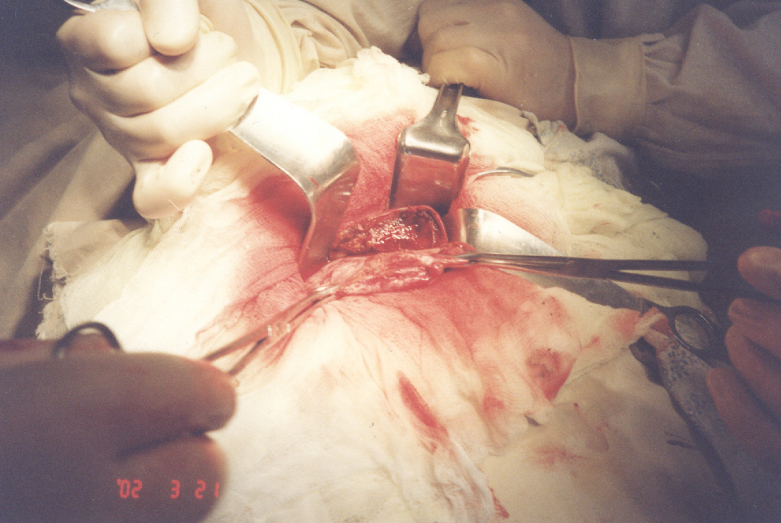
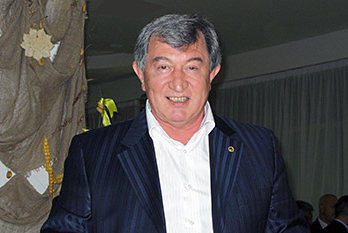
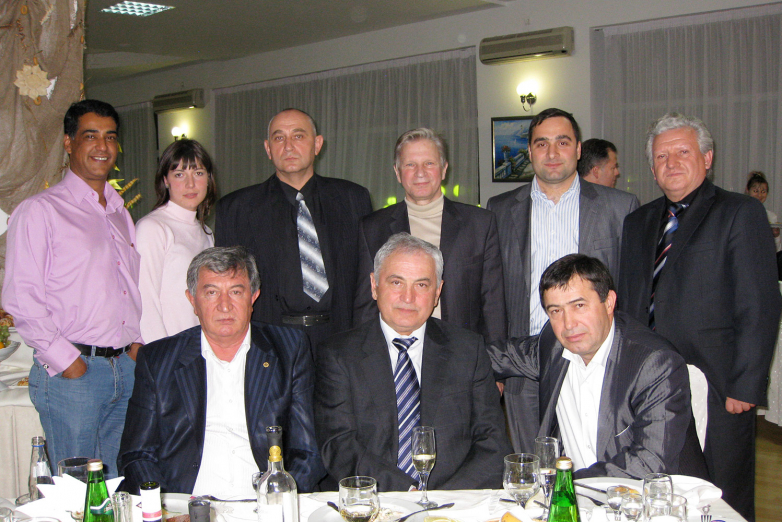
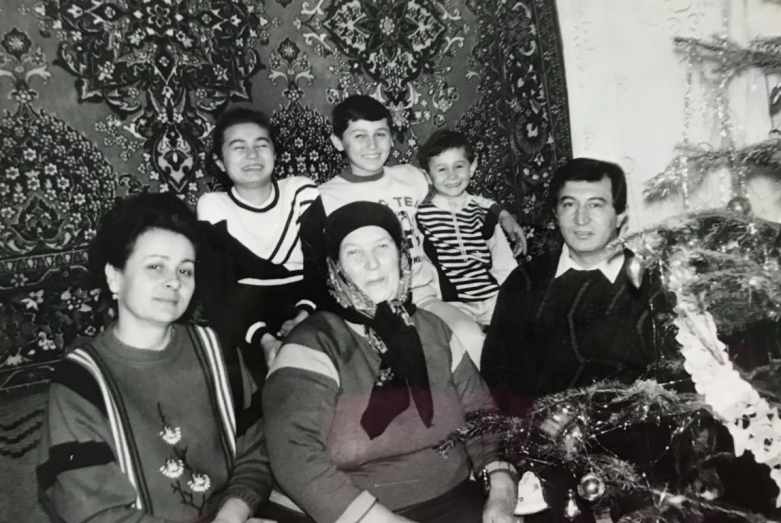
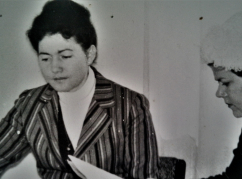
to login or register.